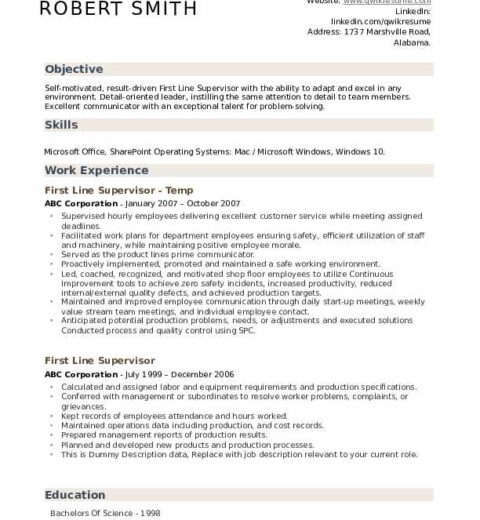In the competitive landscape of job searching, a resume serves as a crucial tool for candidates to showcase their qualifications and professional persona. Among the myriad components of a resume, the objective statement holds significant importance. But what exactly is a resume objective, and how can it be crafted to perfection? This article will delve into the nuances of resume objectives, providing insights into their function, structure, and best practices for development.
At its core, a resume objective is a succinct declaration of a candidate’s career aspirations and the specific role they seek. It is typically positioned at the top of the resume, serving as a preamble that draws the reader’s attention. The primary purpose of this statement is to articulate the candidate’s intent and to contextualize the subsequent experiences and skills outlined in the rest of the document.
Employers and recruiters often scan resumes quickly; thus, a well-structured objective can be instrumental in piquing their interest. The resume objective should encapsulate the candidate’s value proposition while also addressing the needs of the employer. It should reflect how the applicant’s goals align with the organization’s mission, thereby demonstrating a mutual benefit.
When crafting a resume objective, consider the following key elements:
- Relevance: Tailor the objective to the specific position for which you are applying. This involves incorporating keywords from the job description and echoing the qualifications that the employer seeks.
- Clarity: Use plain language that conveys your message effectively. Avoid jargon or overly complex constructions. The objective should be easily digestible at a glance.
- Conciseness: Aim for one to two sentences. A resume objective should be brief yet informative, ideally comprising 40 to 100 words. Brevity is key; elaborate descriptions belong in other sections of the resume.
- Positive Tone: Maintain an optimistic and proactive tone. Highlighting what you bring to the table rather than focusing on what you seek amplifies your appeal as a candidate.
To illustrate these principles, here are examples of effective resume objectives:
- “Ambitious marketing graduate seeking an entry-level digital marketing role at XYZ Corp, aiming to leverage strong analytical skills and a passion for social media to drive brand engagement.”
- “Dedicated IT professional with over five years of experience in network management, looking to apply expertise in cybersecurity at Tech Innovations to enhance system security and optimize operational efficiency.”
While formulating an objective, it’s essential to remain authentic; this statement should genuinely reflect your career goals. Overstating skills or experiences may lead to future discrepancies during interviews, where deeper probing might expose inconsistencies.
Another consideration is whether to use a resume objective or an alternative, such as a summary statement. While the resume objective focuses explicitly on your career aspirations, a summary statement provides a more comprehensive overview of your qualifications and achievements. For example, a summary might encompass your skills, years of experience, and notable accomplishments in a thematic manner. The decision between an objective and a summary often depends on personal preference and the context of the application.
Regardless of which you choose, the emphasis should remain on clarity and relevance. In scenarios where an objective feels excessive or redundant, a summary may serve as a more effective introduction to your credentials.
As you embark on your resume writing journey, consider the employer’s perspective. Understanding what hiring managers prioritize can guide you in crafting a compelling objective. Common buyer concerns include:
- Cultural Fit: Employers seek candidates whose values align with the company culture. Reflecting knowledge about the organization’s mission and values in your objective can demonstrate that you are not just looking for any job, but that you are interested specifically in them.
- Skill Alignment: Highlight skills that are directly relevant to the job. Use this opportunity to convey how your skill set matches the job description, increasing the likelihood of your resume being reviewed in detail.
- Future Aspirations: Conveying ambition and a desire for growth can resonate with employers who prefer candidates that are invested in their professional development and long-term value to the company.
In conclusion, the resume objective may appear deceptively simple, yet it harbors the potential to significantly influence the hiring process. By meticulously crafting an objective that elucidates your professional aspirations, aligns with employer expectations, and underscores your unique qualifications, you position yourself as a compelling candidate in a sea of applicants. Ultimately, a well-conceived resume objective operates as your introduction, setting the tone for the remainder of your resume and enhancing your chances of making a notable impression.




